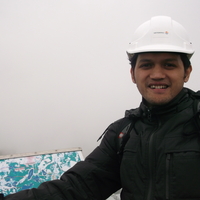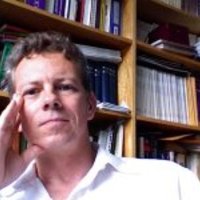
Shriniwas Valunjkar
Dr. S.S. Valunjkar, Consulting Civil Engineer & Legal Advisor (Practitioner), Formerly Professor & Head, Department of Civil Engineering, Government Colleges of Engineering, Maharashtra State, India
Graduated in 1983 from the University of Mysore with, a Postgraduate in Hydraulics Engineering (1990) from Nagpur University, and Doctoral Degree in Civil Engineering (2000) from VNIT Nagpur (formerly VRCE Nagpur) affiliated with Nagpur University. Bachelor of Law (LLB) from Shivaji University, Kolhapur & Advocate , Bar Council of India (Maharashtra & Goa) [2021] and qualified All India Bar Examination.
More than 34 years of teaching experience, out of which 24+ years at postgraduate level studies.
Published more than 60 research papers and completed 02 research projects funded by various apex authorities.
Guided 03 Ph.D. Research Scholars and Approx. 35 + Post Graduate Dissertations
Conducted many short-term training programs for faculty development from academic year 1999 - 20 in emerging areas of engineering & technology.
Also completed a postgraduate course in Housing from the School of Planning & Architecture, New Delhi (1986).
Associate Member of Institute of Town Planners (India) [AITP 92/02]
Advanced Diploma in Computer Software & System Development Analysis, MSBTE, Maharashtra State (1999), MS-CIT 2002.
Life Member, Institution of Engineers (India),
Life Member, Indian Society for Hydraulics,
Life member, Indian Roads Congress,
Life member, Institute of Town Planners (India)
Life member, Indian Society for Technical Education
Wide experience in conducting University & public services examinations
Supervisors: Civil Engineering Consultant & Legal Advisor and Guided 03 Ph.D. Reseach Scholars and Appox. 35 + Post Graduate Dissertations
Address: India
Graduated in 1983 from the University of Mysore with, a Postgraduate in Hydraulics Engineering (1990) from Nagpur University, and Doctoral Degree in Civil Engineering (2000) from VNIT Nagpur (formerly VRCE Nagpur) affiliated with Nagpur University. Bachelor of Law (LLB) from Shivaji University, Kolhapur & Advocate , Bar Council of India (Maharashtra & Goa) [2021] and qualified All India Bar Examination.
More than 34 years of teaching experience, out of which 24+ years at postgraduate level studies.
Published more than 60 research papers and completed 02 research projects funded by various apex authorities.
Guided 03 Ph.D. Research Scholars and Approx. 35 + Post Graduate Dissertations
Conducted many short-term training programs for faculty development from academic year 1999 - 20 in emerging areas of engineering & technology.
Also completed a postgraduate course in Housing from the School of Planning & Architecture, New Delhi (1986).
Associate Member of Institute of Town Planners (India) [AITP 92/02]
Advanced Diploma in Computer Software & System Development Analysis, MSBTE, Maharashtra State (1999), MS-CIT 2002.
Life Member, Institution of Engineers (India),
Life Member, Indian Society for Hydraulics,
Life member, Indian Roads Congress,
Life member, Institute of Town Planners (India)
Life member, Indian Society for Technical Education
Wide experience in conducting University & public services examinations
Supervisors: Civil Engineering Consultant & Legal Advisor and Guided 03 Ph.D. Reseach Scholars and Appox. 35 + Post Graduate Dissertations
Address: India
less
Related Authors
Oleg Yu Vorobyev
Siberian Federal University
Bent Flyvbjerg
University of Oxford
David Seamon
Kansas State University
Estella Weiss-Krejci
Austrian Academy of Sciences
Armando Marques-Guedes
UNL - New University of Lisbon
Sandra (A.C.C.) van Wijk
American University of Sharjah
Eric Poehler
University of Massachusetts Amherst
Iolanda Craifaleanu
Technical University Of Civil Engineering, Bucharest
Muhammad Sonny Abfertiawan
Institut Teknologi Bandung
Michael Neale
Virginia Commonwealth University
InterestsView All (11)










Uploads
Videos by Shriniwas Valunjkar
Course Outcomes
1. Identify basic universal human values
2. Outline various types of rights and ethical conduct.
3. Exhibit correct moral ethical behaviour.
Unit 1 Human Values
Unit 2 Engineering Ethics
Unit 3 Engineering as Social Experimentation
Unit 4 Moral Reasoning and Moral Frameworks
Unit 5 Global Issues
Papers by Shriniwas Valunjkar
Course Outcomes
1. Identify basic universal human values
2. Outline various types of rights and ethical conduct.
3. Exhibit correct moral ethical behaviour.
Unit 1 Human Values
Unit 2 Engineering Ethics
Unit 3 Engineering as Social Experimentation
Unit 4 Moral Reasoning and Moral Frameworks
Unit 5 Global Issues
Sustainable development is all about meeting basic needs of all in such a way that it gives an
opportunity to aspire for a life. It also says that it should be ensured that poor also have a fair
chance to use and share the resources for their growth. The political system and democracy
should ensure equity for the effective participation of citizens in decision-making for national
as well as international issues. The National Green Tribunal Act 2010; The Air (Prevention and
Control of Pollution) Act, 1981; The Water (Prevention and Control of Pollution) Act, 1974;
The Environment Protection Act, 1986; The Hazardous Waste Management Regulations, etc.
However, these laws are facing a severe problem of implementation at the ground level, making
many question the effectiveness and seriousness of environmental laws in the country. The
concept of sustainable development can be explained in a number of ways, but at its core is an
approach to development that looks to balance different, but competing, needs against an
awareness of the social, environmental, and economic limitations that are faced as a society.
Main commitments included those on sustainable consumption and production, energy, water, and sanitation.
suitable combination, which maximizes a benefit or minimizes a cost subject to given constraints should be expressed through simple linear algebraic expression or equations. Fuzzy Linear Programming (FLP) has many
applications in water resources engineering. It has been used for planning the conjunctive use of surface water in
canal command regions. The proposed FLP supports the cooperation between water administration and water
users, and also the cultivators in relation to revising cropping pattern. Fuzzy system modelling considers the fuzziness in the variables, which can be implemented in the field. The degree of satisfaction gives the reliability of the fuzzy modelling. In the earlier studies, many researchers have included the fuzziness in a linguistic form and also included either in the inflow or in the demand. Hence, it is felt necessary to carry out study on development and application fuzzy logic system in context with the sustainable development. Model was used in command regions
under Pench irrigation project for determining optimal cropping activities during kharif, rabi, and hot weather
seasons so as to maximize economic returns to the agricultural producers by making most efficient use of surface water resources at different reliable flow conditions.
suitable combination, which maximizes a benefit or minimizes a cost subject to given constraints should be
expressed through simple linear algebraic expression or equations. Fuzzy Interface System (FIS) has many applications in water resources engineering. It has been used for planning the conjunctive use of surface water in canal command regions. The proposed FIS supports the co-operation between water administration and water users,
and the cultivators in relation to revising cropping pattern. Fuzzy system modelling considers the fuzziness in the variables, which can be implemented in the field. The degree of satisfaction gives the reliability of the fuzzy modelling. In the earlier studies, many researches have included the fuzziness in a linguistic form and also included either in the inflow or in the demand. Hence, it is felt necessary to carry out study on development and application fuzzy logic system in context with the sustainable development. Model was used in command regions under Pench irrigation project for determining optimal cropping activities during kharif, rabi, and hot weather seasons so as to maximize economic eturns to the agricultural producers by making most efficient use of surface water resources at different reliable flow conditions.
CE2301 : Values and Ethics
Course Outcomes:
(i) Identify basic universal human values
(ii) Outline various types of rights and ethical conducts.
(iii) Exhibit correct moral and ethical behaviour.
Topics Covered:
1. Objectives of Ethics
2. Values
3. Morals
Ven Tee Chow Method
Bresse's Method
Direct Step Method
Solved Problem on Hydraulic Jump